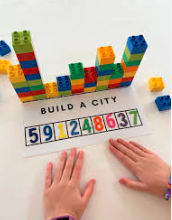Introducing math to preschoolers can be a joyful experience when done through playful, interactive methods. At this age, children are naturally curious and eager to explore the world around them. By blending learning with engaging activities, educators and caregivers can spark a lasting interest in numbers and problem-solving.
Start with Everyday Math One of the easiest ways to make math fun is by incorporating it into daily routines. Counting snacks, sorting laundry by color or size, and setting the table all provide natural opportunities for children to explore basic math concepts. These simple tasks help build number recognition, sequencing, and pattern identification skills in a comfortable environment.
Use Hands-On Materials Preschoolers learn best through touch and movement. Using items like building blocks, counting beads, or shape sorters encourages active participation. Activities like making patterns with colored blocks or matching numbers to groups of objects help reinforce early math skills while keeping learning fun and tactile.
Sing and Move with Math Songs Music and movement can make math concepts more memorable. Songs that involve counting, sequencing, or shapes help children internalize math skills in a joyful and rhythmic way. Dancing or clapping to numbers also supports physical coordination and listening skills.
Create Math Games Games are a fantastic way to encourage learning through play. Simple board games that involve counting spaces, matching games with numbers and quantities, or scavenger hunts for shapes can turn math into an adventure. These games promote turn-taking, attention, and logical thinking.
Incorporate Storytelling and Visuals Storybooks that feature numbers, shapes, or problem-solving themes can bring math to life. Reading together allows children to see math in action and connect it to stories they enjoy. Visual aids like charts, flashcards, and illustrated books can further reinforce understanding.
Celebrate Small Successes Positive reinforcement helps build confidence. Celebrating when a child counts to ten, recognizes a new shape, or completes a matching activity encourages them to keep trying. Praise and encouragement go a long way in creating a positive learning experience.
By making math interactive, playful, and part of everyday life, preschoolers can develop a strong, happy foundation in early numeracy. With the right approach, math becomes not only understandable but exciting.


